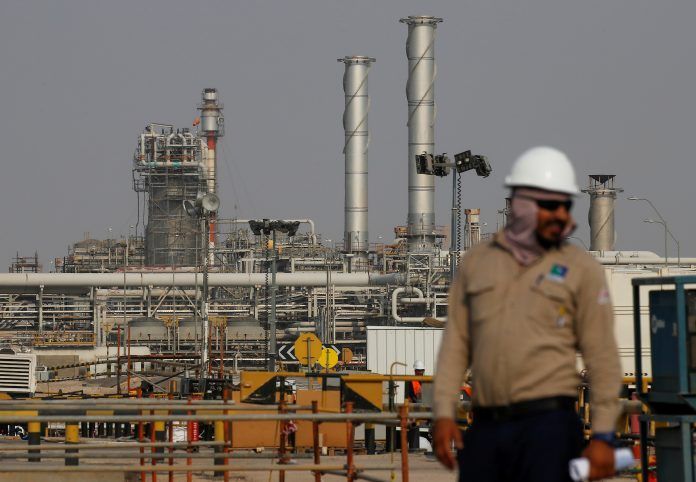
DUBAI, Jan 29 (Reuters) – Yemen’s Iran-aligned Houthi movement said on Wednesday it had carried out operations targeting facilities belonging to Saudi Aramco in Jizan on the Red Sea, but there was no immediate confirmation from Saudi authorities of any attack.
Houthi military spokesman Yahya Saria did not say when it had taken place. He said it was carried out in retaliation for an escalation in air strikes.
Other Saudi targets near the border with Yemen, including Abha and Jizan airports and Khamis Mushait military base, had also been targeted “with a large number of rockets and drones”, he said.
State oil giant Aramco declined to comment on the report.
[aesop_image img=”https://kayhanlife.com/wp-content/uploads/2019/06/2019-06-24T155435Z_56538842_RC196DE01F90_RTRMADP_3_YEMEN-SECURITY-SAUDI-ATTACK.jpg” panorama=”off” credit=”FILE PHOTO: Passengers wait at Saudi Arabia’s Abha airport, after it was attacked by Yemen’s Houthi group, Abha, Saudi Arabia June 24, 2019. REUTERS/Nael Shyoukhi” align=”center” lightbox=”off” captionsrc=”custom” captionposition=”left” revealfx=”off” overlay_revealfx=”off”]
The Houthis have been battling a Saudi-led military coalition for nearly five years. If confirmed, the attacks would be the first by the Houthis on Saudi Arabia since late September, when the group said it would halt missile and drone attacks on if the coalition ended air strikes on Yemen.
Oil prices were higher after the reports. Brent futures were up 70 cents, or 1.18%, at $60.21 a barrel at 1348 GMT and U.S. WTI was up 47 cents, or 0.88%, at $53.95 a barrel.
The Houthis had extended their offer to halt strikes on Saudi targets last year after claiming responsibility for a Sept. 14 attack on Saudi oil facilities that initially halved the kingdom’s output. Riyadh rejected the Houthi claim of responsibility for that attack and instead blamed Iran, which denied it.
After a lull in hostilities in recent months on many fronts, violence has escalated at a frontline east of Yemen’s Houthi-held capital Sanaa, since a Jan. 19 missile attack on a government military camp which killed more than 100 people.
United Nations Yemen envoy Martin Griffiths in the past week condemned the uptick in troop movements, air strikes, and missile and drone attacks, saying they jeopardise progress being made on de-escalation and confidence building.
Yemen has been mired in almost five years of conflict since the Houthi movement ousted the government of President Abd Rabbu Mansour Hadi from the capital in late 2014. The Saudi-led military coalition intervened in 2015 in a bid to restore him.
The United Nations has been trying to re-launch political negotiations to end the war and, separately, Riyadh has been holding informal talks with the Houthis since late September about de-escalation.
(Reporting by Maher Chmeytelli, Lisa Barrington and Rania El Gamal Writing by Lisa Barrington; editing by Jason Neely and David Evans)

